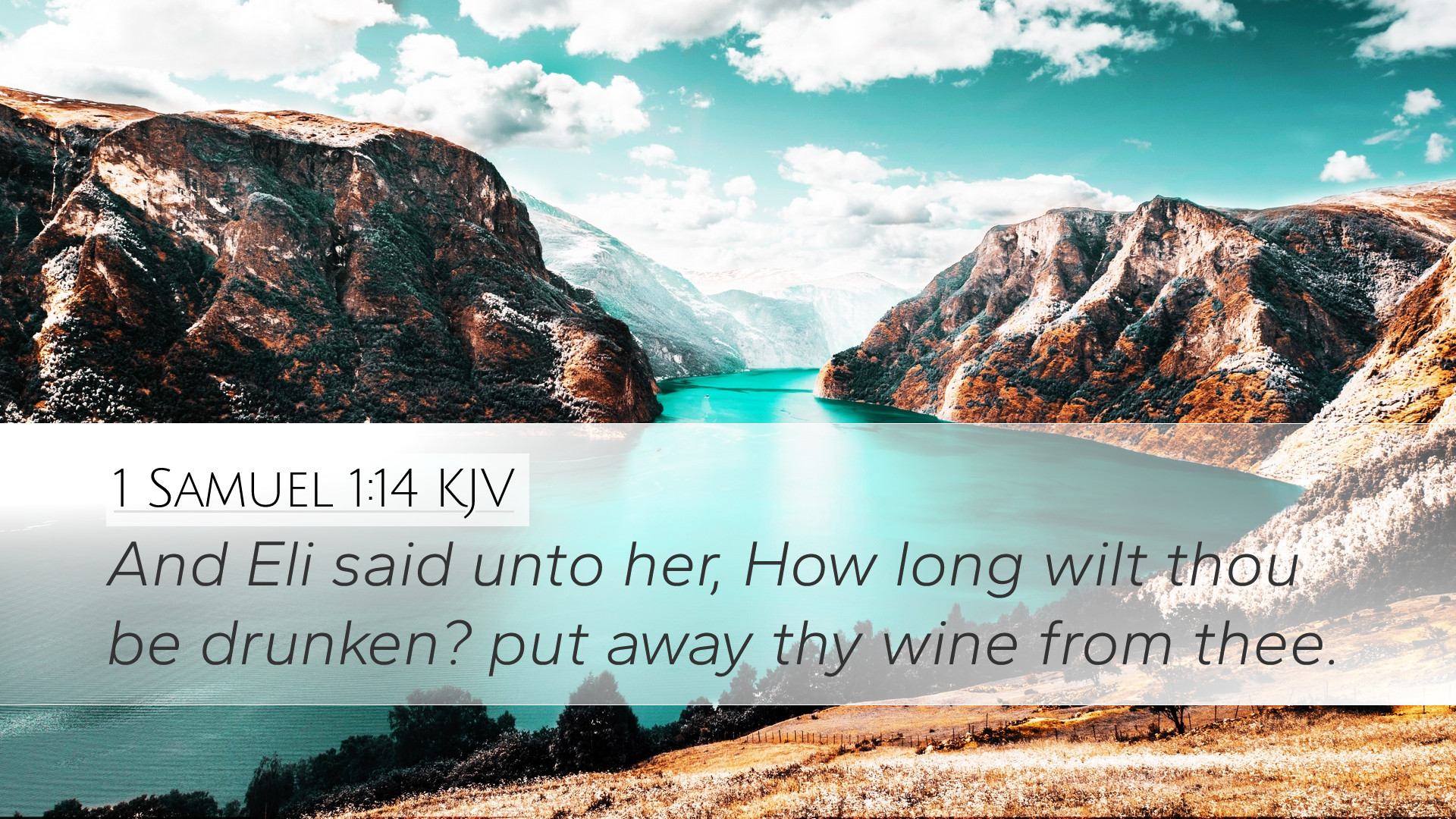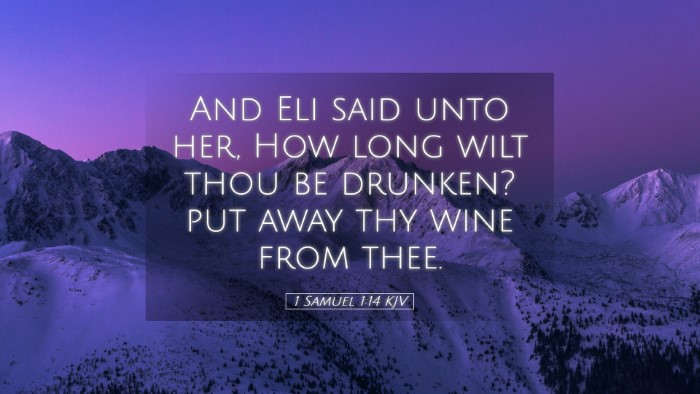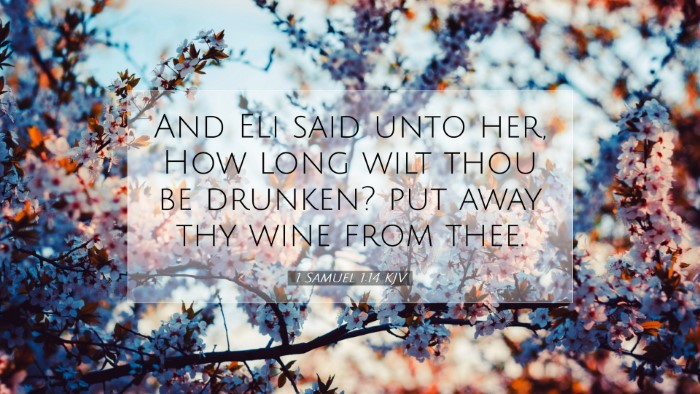Commentary on 1 Samuel 1:14
Verse: "And Eli said unto her, How long wilt thou be drunken? put away thy wine from thee." (1 Samuel 1:14, KJV)
Introduction
The passage from 1 Samuel 1:14 captures a pivotal moment in the narrative of Hannah, a woman who faced deep anguish due to her barrenness and the mocking of her rival, Peninnah. As she prayed fervently in the temple, she was misinterpreted by Eli, the priest. This commentary aims to explore the depth of this encounter, examining the context, insights from public domain commentaries, and the theological implications for contemporary readers.
Contextual Understanding
This verse is set against the backdrop of Hannah's fervent prayer in Shiloh. She was deeply distressed and sought the Lord for a son, making a vow that if God granted her a child, she would dedicate him to the Lord's service. Eli's accusation of drunkenness highlights both the spiritual fervor of Hannah and the misperception by spiritual leaders.
Insights from Public Domain Commentaries
Matthew Henry's Commentary
Henry remarks on the earnestness of Hannah's prayer, indicating that it was so intense that it was misinterpreted by Eli. He emphasizes that Hannah's action “was not with a drunken spirit but with strong faith.” This misjudgment underscores the theme of how genuine spiritual experiences can be misunderstood by the untrained eye.
Albert Barnes' Notes on the Bible
Barnes further explores Eli's response, asserting that it illustrates a lack of discernment on Eli's part which may have stemmed from a general moral or spiritual decline recognized in the priesthood during that era. His rebuke reflects a potential insensitivity to true worship and the workings of God in the heart of a desperate supplicant. Barnes highlights the importance of being attuned to the authenticity of others' faith expressions, particularly in a church setting.
Adam Clarke's Commentary
Clarke notes that the phrase “How long wilt thou be drunken?” reveals Eli's immediate judgment based on outward appearances. He points out that Eli’s disbelief was a symptom of a broader issue: priests being potentially out of touch with genuine piety and holiness. Clarke suggests this serves as a caution for spiritual leaders to be vigilant and aware of the varied expressions of worship, as true supplication can sometimes wear the guise of what seems unusual or inappropriate.
Theological Implications
This encounter in 1 Samuel 1:14 prompts profound theological reflections, especially regarding the nature of prayer, divine attentiveness, and human misunderstanding. It reinforces several key themes: the depth of individual prayer life, the challenges of faithful service in a flawed community, and the persistent action of God in response to sincere hearts seeking Him.
The Nature of Prayer
Hannah's prayer is a critical reminder that prayer can be a deeply emotional process. Despite Eli's harsh words, it was in this intimate moment of vulnerability that Hannah found her voice with God, revealing the truth that prayer often transcends the expectations of structured worship.
Human Misunderstanding
The story serves as a caution against hasty judgments in spiritual contexts. Those in leadership, like Eli, must recognize that what may appear as disorderly might be a sincere and passionate pursuit of God by others. This broader principle calls for compassion and an understanding posture toward those we might misjudge.
Divine Response
Hannah's determination and the misinterpretation she faced ultimately led to a remarkable answer to her prayer, aligning with God's sovereign purpose. This narrative demonstrates that God's plans often operate beyond human comprehension, affirming His providence even in our struggles.
Conclusion
In conclusion, 1 Samuel 1:14 serves as a rich source of insight into human emotion, the nature of prayer, and the dynamics of misunderstanding within a spiritual community. It invites pastors, theologians, and students to engage deeply with the text, encouraging a spirit of empathy and attentiveness in theirown prayer lives and communal worship contexts.
Reflection Questions
- What can we learn about the nature of true worship from Hannah's response to Eli's rebuke?
- How can we ensure we are sensitive to the various expressions of faith within our communities?
- In what ways does this passage challenge our understanding of prayer as a dialogue with God?


